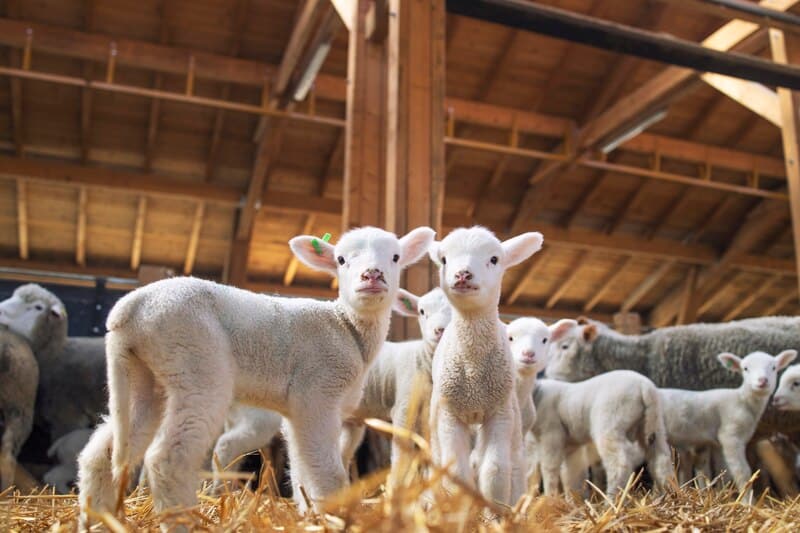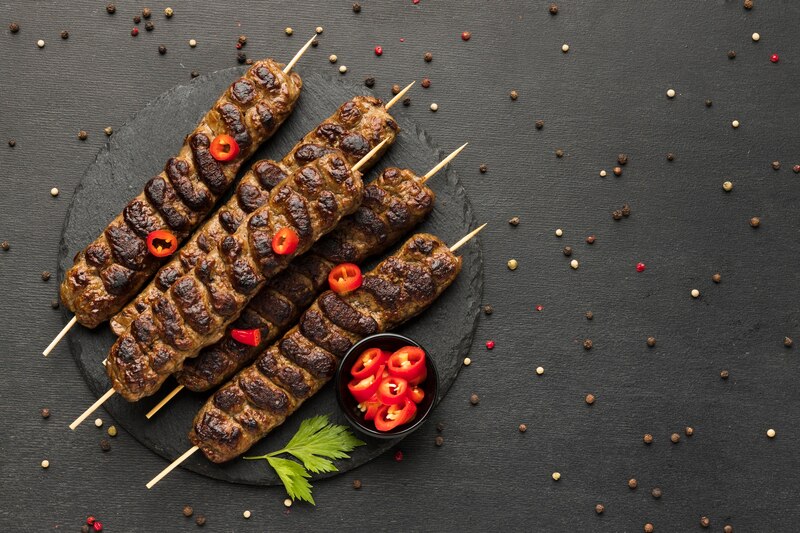Future Meat Technologies of Israel has successfully grown lamb meat using cellular agriculture, a production technology that can help lower the animal agriculture industry’s 180 million-ton methane footprint.
In 2020, global methane emissions reached 570 million metric tons, and livestock emissions accounted for around 32 percent of the total, or 180 million metric tons, according to the United Nations Environment Programme.
More than 100 countries, including the United States, are currently cooperating under the Global Methane Pledge to reduce methane emissions by 30 percent below their 2020 levels by 2030.
Future Meat Technologies (FMT) is reducing the number of food-producing ruminants as a means of reducing methane emissions, a strong greenhouse gas. The company claims there is a better way to provide consumers with lamb meat that does not involve killing infant animals or leaking methane into the atmosphere. This week, a company located in Israel revealed that it had successfully generated lamb flesh from a little amount of animal cells.
Future Meat’s CEO, Nicole Johnson-Hoffman, stated in a statement, “By surpassing this milestone, Future Meat confirms its position as a leader and pioneer in the cultivated meat sector and demonstrates once again the boundless potential of innovation to deliver sustainable solutions.” Future Meat will use the important lessons learned to develop different meats, including beef and pork, expanding its market options to consumers.

Lamb raised for a better world
FMT began developing cultured lamb in 2019 by isolating fibroblast cells (or cells that contribute to the production of connective tissue) from Awassi sheep, a breed native to Southwest Asia. From these cells, FMT created two unique, immortal ovine cell lines. These cells are propagated in an animal-free medium, a development that FMT made possible by eliminating the need for fetal bovine serum (a costly animal-derived media). The meat produced in a bioreactor rather than on an animal is indistinguishable from traditionally raised lamb.
Michael Lenahan, general manager of FMT, stated in a statement, “Because lamb has a flavor all its own, it is easy to tell if a developed alternative is authentic or not.” “Future Meat’s cultured lamb is indistinguishable from traditional lamb because, first and foremost, it is genuine meat. It sizzles, sears, and tastes exactly as expected; it’s incredible.”
Last year, FMT raised a record $347 million in a Series B fundraising round led by the venture arms of agribusiness behemoth ADM and traditional meat company Tyson Foods. FMT also engaged in discussions with the multinational food and beverage corporation Nestlé, which spotted the possibility of merging FMT’s meat products into its Garden Gourmet brand in order to offer consumers a product that combines farmed and plant-based meat.
FMT, headquartered in Rehovot, has utilized this investment to promote its aim of delivering produced meat to market at a cheap price, including unique species such as lamb. In addition to not using fetal bovine serum, the company uses a patented media rejuvenation technique in which its steel fermenters remove waste and recycle up to 70 percent of nutrients, resulting in better cell densities. This novel way to producing cultured meat has enabled the company to lower the price of its cultured chicken products from around $18 per pound to $7.70 per pound (or $1.50 per 110-gram chicken breast) within six months.
The company is aiming to market its cultured meats and hopes to open its first production unit in the United States this year.

Not only does cellular agriculture provide the chance to eliminate animal slaughter from the meat production equation, but it also eliminates the requirement to feed, drink, house, and transport these animals, resulting in numerous environmental benefits.
Steakholder Foods, a company also situated in Rehovot, is one of Israel’s many innovators in the cellular agriculture industry (previously known as MeatTech 3D). This week, the company stated that it is seeking to add porcine (pig) cells to its growing range of cultured meat products, which already includes cultured beef, poultry, fish, and seafood.
Steakholder Fooods, a company financed by actor Ashton Kutcher, has been able to reprogram pig cells back into their embryonic-like pluripotent state, allowing one cell bank to be used indefinitely for the development of both muscle and fat. Using their own 3D-bioprinting technique, Steakholder Foods intends to manufacture structural meat products such as developed bacon, pork chops, and ham. Arik Kaufman, CEO and Founder of Steakholder, stated in a statement, “We are thrilled to be adding porcine to our range of species.” It is widely acknowledged that pork is the most popular meat in the world, giving it enormous market potential.
Singapore is the only country in the world that has currently awarded regulatory approval for grown meat. The Singapore Food Agency approved the sale of cultured chicken produced by GOOD Meat, the cultivated meat division of Eat JUST, famed for its vegan JUST Egg, in late 2020. FMT, GOOD Meat, SteakHolder, and many others are collaborating with regulatory bodies across the globe, including the United States, to obtain regulatory approval for cultured meat, a technology with the potential to change the global food system by rendering industrial farming obsolete.








